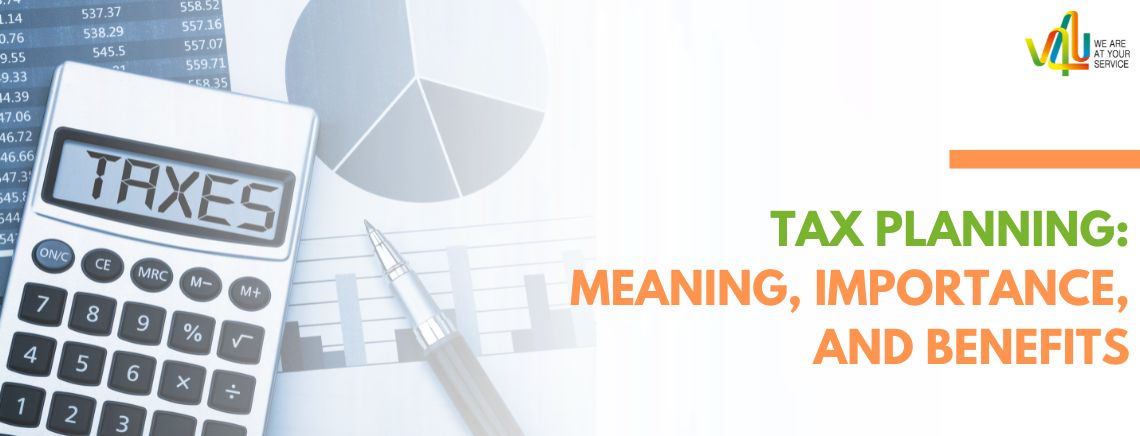Tax Planning: Meaning, Importance, and Benefits
Tax planning plays a crucial role in financial management, helping individuals and businesses legally reduce their tax liabilities. By strategically organizing finances, taxpayers can optimize deductions, exemptions, and credits while staying compliant with tax regulations.
This article simplifies the meaning, importance, and benefits of tax planning, highlighting why it is an essential financial strategy.
What is Tax Planning?
Tax planning involves analyzing and structuring financial activities to minimize tax liabilities while adhering to legal guidelines. It enables individuals and businesses to maximize tax benefits through deductions, exemptions, and investment strategies.
It is important to distinguish tax planning from tax evasion. While tax planning is a legitimate way to reduce taxes, tax evasion involves illegal practices to avoid paying taxes. Effective tax planning ensures that individuals pay the correct amount of tax—neither overpaying nor underpaying—while making the most of available tax-saving opportunities.
Types of Tax Planning
There are several approaches to tax planning, depending on financial goals and timelines:
- Annual Tax Planning: Focuses on short-term tax-saving strategies within a financial year, often involving last-minute investments to maximize deductions.
- Long-Term Tax Planning: Involves strategic financial decisions designed to minimize tax liabilities over several years while fostering financial growth.
- Purposive Tax Planning: Aligns tax-saving strategies with specific financial goals, such as creating trusts, restructuring income, or making productive investments that offer tax benefits.
Importance of Tax Planning
1. Reducing Tax Liabilities
Tax planning helps individuals and businesses legally lower their tax burden by utilizing deductions, exemptions, and rebates, allowing them to retain more of their earnings.
2. Ensuring Compliance
A well-planned tax strategy ensures compliance with tax laws, preventing penalties, audits, and legal complications.
3. Optimizing Investments
By identifying tax-efficient investment avenues, tax planning allows individuals to grow their wealth while minimizing tax obligations.
4. Managing Cash Flow
Proper tax planning prevents financial strain by ensuring that tax payments are predictable and manageable throughout the year.
5. Supporting Retirement Planning
Many tax-saving investments come with long-term benefits, such as provident funds and pension schemes, which secure post-retirement income while reducing taxable income.
Benefits of Tax Planning
1. Maximizing Deductions and Credits
Strategic tax planning allows individuals to leverage deductions on expenses such as education fees, health insurance, home loans, and retirement contributions, lowering taxable income.
2. Better Investment Opportunities
Tax-efficient investments, such as tax-saving mutual funds, insurance policies, and pension plans, provide dual benefits of wealth accumulation and tax savings.
3. Reducing Financial Risk
Proper tax planning mitigates the risk of unexpected tax liabilities, ensuring a smooth financial journey without last-minute financial burdens.
4. Accumulating Wealth Over Time
The money saved through tax planning can be reinvested in stocks, bonds, or real estate, contributing to long-term financial growth.
5. Minimizing Litigation
By ensuring compliance with tax regulations, tax planning reduces the chances of disputes with tax authorities, avoiding unnecessary legal issues and penalties.
6. Contributing to Economic Growth
Legal tax planning ensures that individuals and businesses contribute fairly to the economy, supporting national development and public welfare initiatives.
Conclusion
Tax planning is a fundamental financial strategy that enhances tax efficiency, optimizes investments, and ensures long-term financial stability. By leveraging legal tax-saving options, individuals and businesses can minimize liabilities, maximize savings, and build a secure financial future. Prioritizing tax planning not only results in immediate benefits but also paves the way for sustained financial growth.

